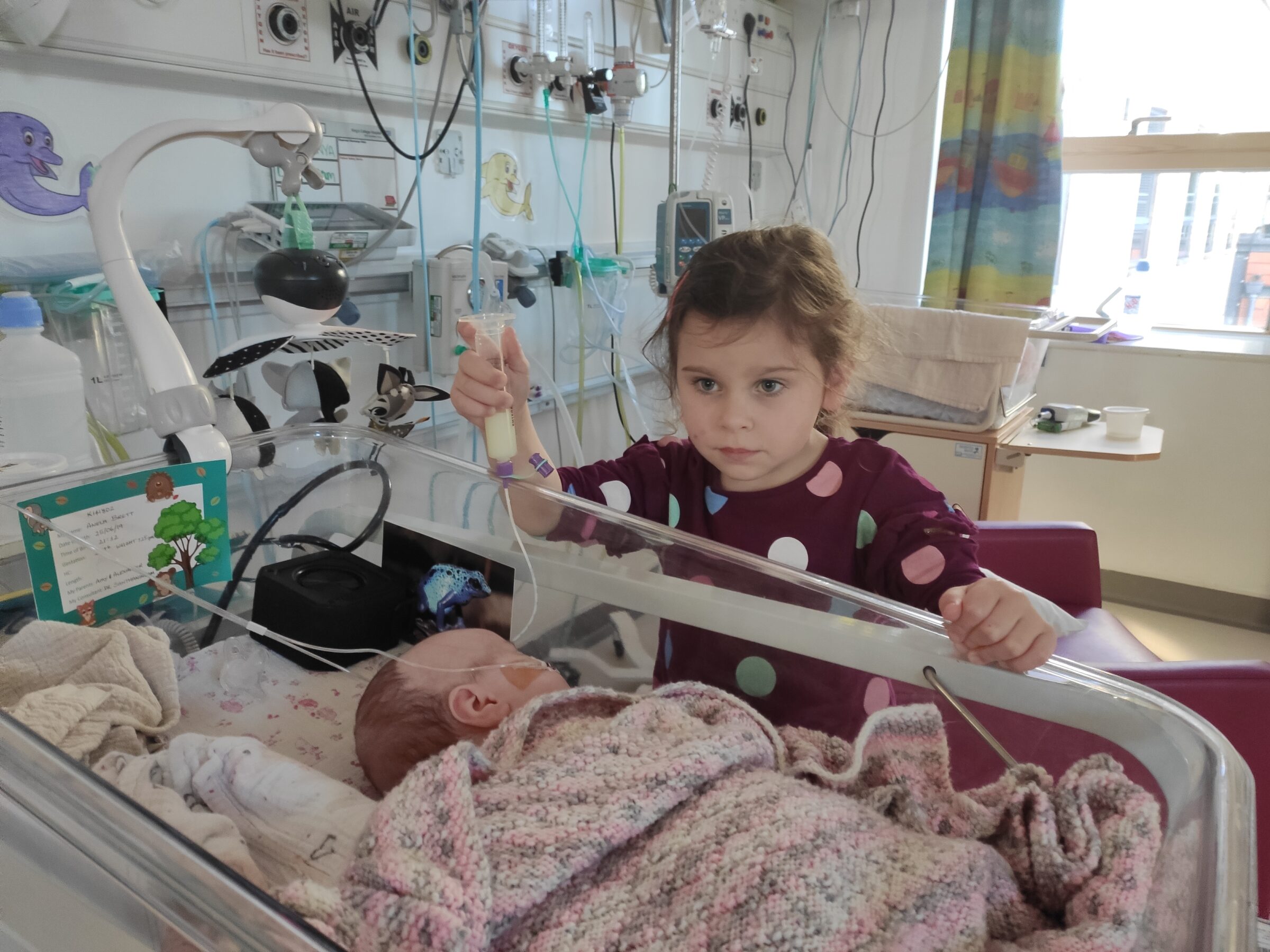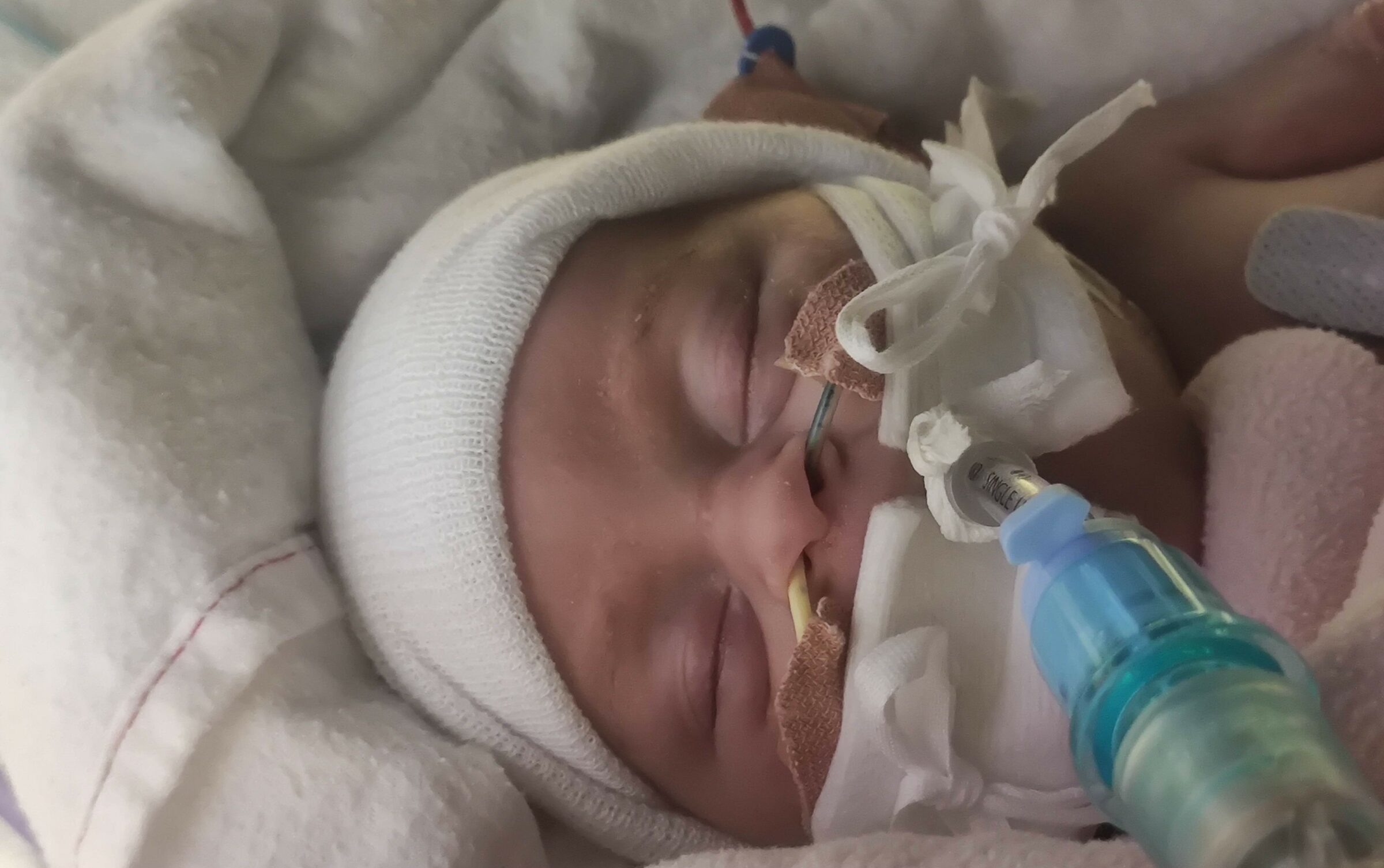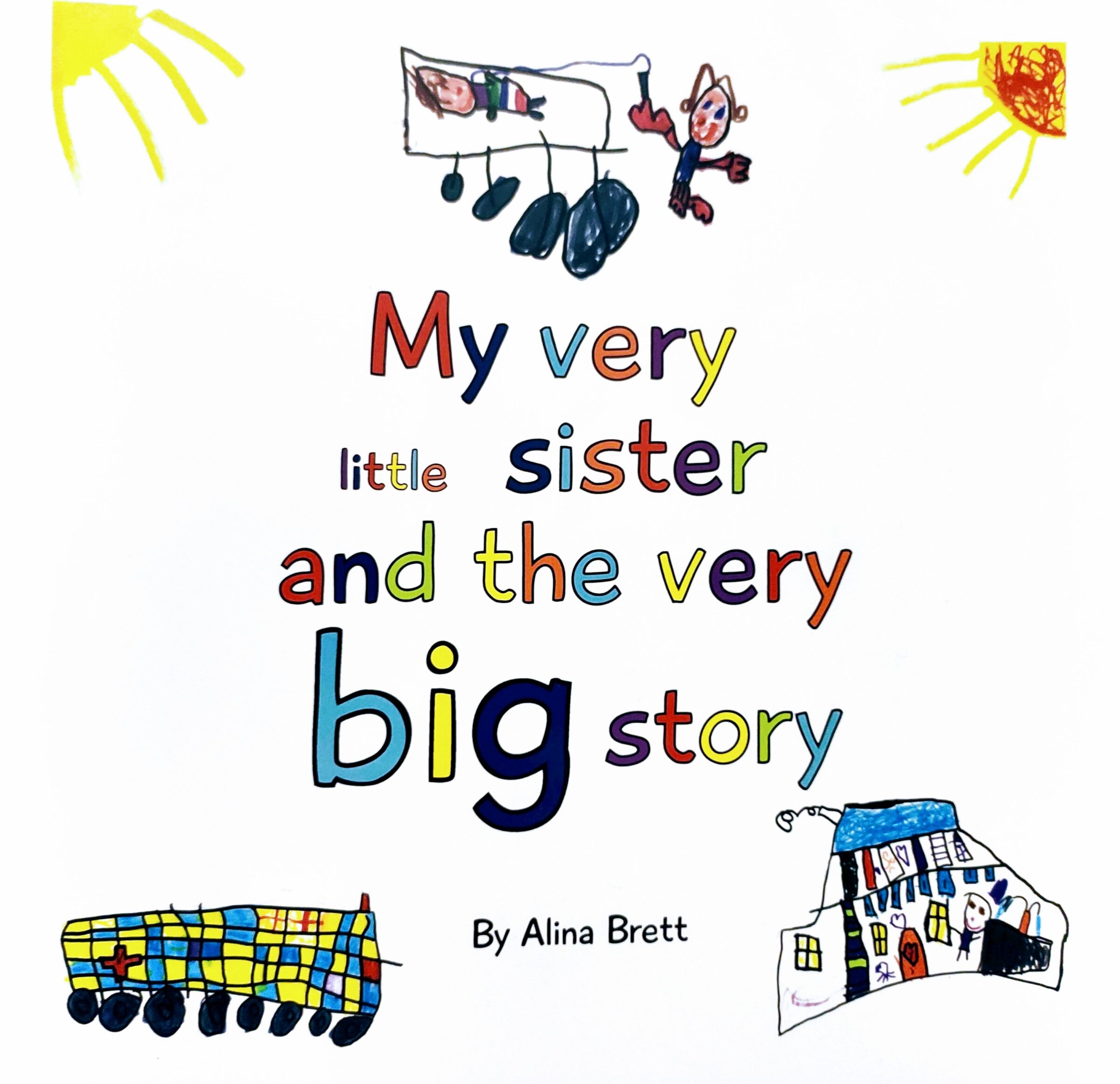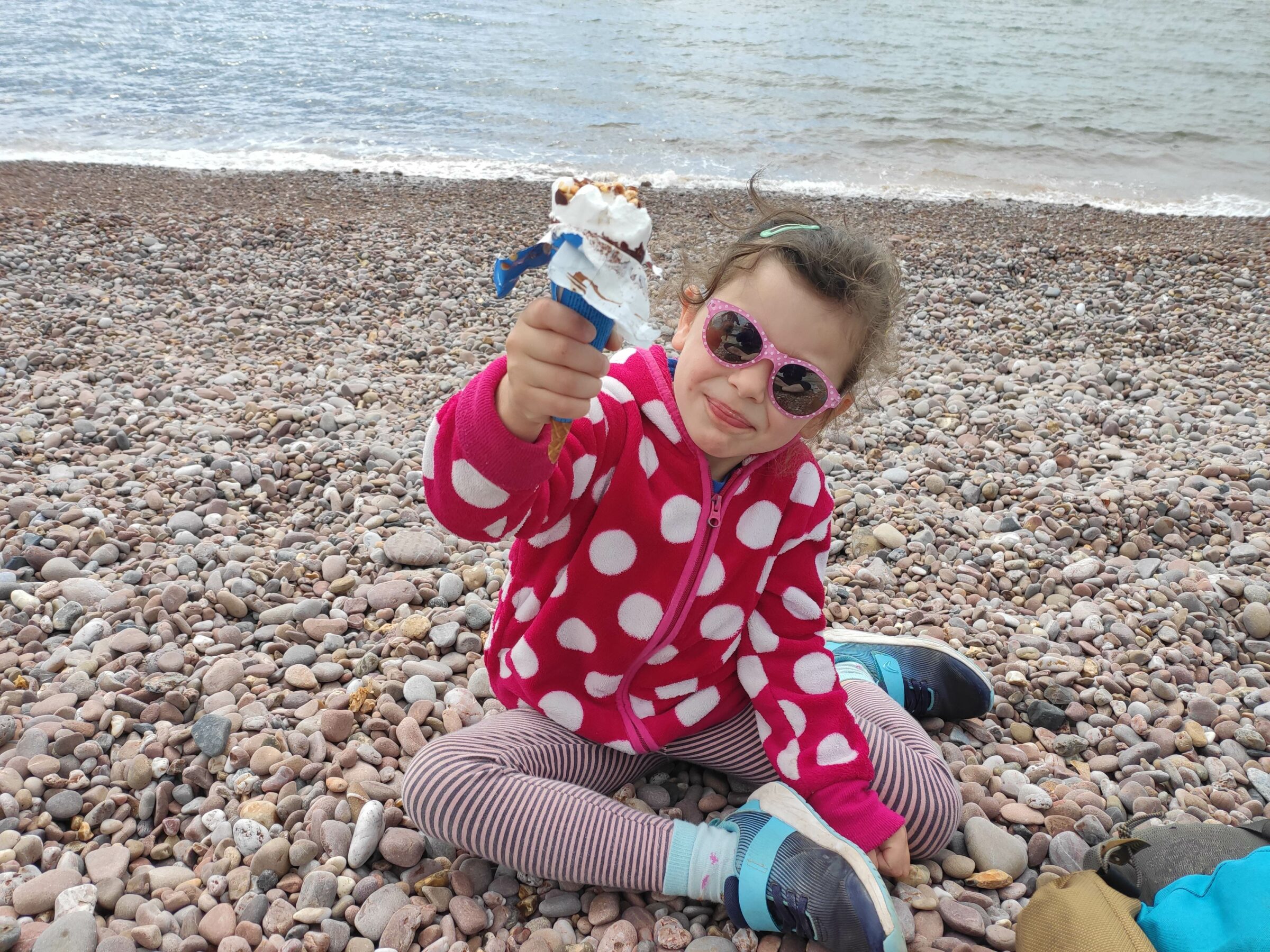
"A terrifying roller-coaster": Anela’s Story
November 01, 2023
In June 2019, Amy and her husband Alex were suddenly flung onto a ‘terrifying roller-coaster ride’ when, just 24 weeks and six days into her pregnancy, Amy gave birth to their tiny baby daughter. Weighing just 725g, Anela was immediately rushed into intensive care at a hospital many miles from the family home.
Amy and Alex, along with their older daughter Alina, were thrown into a foreign world of hospitals, ventilators, and incubators, which would last five long months.
That’s where Ronald McDonald House Charities UK stepped in.

Guest blogger: mum, Amy
We were enjoying a family holiday in Bournemouth, when, three days into our break, I started getting some slightly odd symptoms. I went to the local maternity unit to get checked out and they were concerned enough to send me to the General hospital. From there, I was blue lighted to Brighton, where I gave birth to Anela the following day.
Before I had Anela, I knew nothing about prematurity really and had no idea that babies born so early could survive. When I knew there was no going back and I was about to have Anela, I asked the doctor what her chances of survival would be, and he said around 50 percent.
Anela had sepsis when she was born and that was what had sparked my pre-term labour. The cause was an infection I’d contracted, which had spread to the placenta and transferred to Anela in the womb. She was in a very critical state, and I was very poorly too; we both had to have intravenous antibiotics to try to get rid of the infection. She was taken straight to the neonatal intensive care unit (NICU) in a special neonatal plastic bag, used to help preterm babies avoid hypothermia, as they are highly susceptible to losing body heat.
I was discharged after around five days. Oddly enough, neither Alex nor I had ever questioned what we’d do if we had a sick child who was being treated at a specialist hospital away from home. It had never crossed our minds what families do in that situation. When the nurses told us we’d been referred for a bedroom at the nearby Ronald McDonald House, we were overwhelmed with emotion. Alex had been computing how much we’d have to fork out for a hotel room, but the calculations were impossible, as nobody could tell us how long we were going to be there for.
We live an hour and 45 minutes’ drive from Brighton, so although commuting back and forth would’ve been technically possible, doing that twice a day, every day, with a three-year-old in tow, it becomes unmanageable. Of course, we would’ve done it if that was the only option, but when you factor in the cost of fuel and hospital parking and the added stress and emotional burden, when our child was in a critical medical condition, it was far from ideal.
Our first impressions of Ronald McDonald House Brighton were of a haven, a place of safety and calm away from the incessant beeping of the hospital environment. It smelt homely, rather than sterile and clinical. It was a real ‘home away from home’.
I broke down in tears when we checked in, as that was the moment that I really began to process that we were so far away from home with no idea when we’d be able to return to all that was familiar. A lovely House Assistant, Jazz, was there to pick up the pieces and reassure me that my reaction was totally normal.
We spent six weeks in Brighton before Anela was transferred to a specialist London hospital for heart surgery. She needed patent ductus arteriosus (PDA) ligation, a corrective surgical procedure for children whose ductus arteriosus does not close after birth.
Once again, we were lucky enough to be given a room in a Ronald McDonald House for the duration of Anela’s admission. The Evelina London House was much bigger and as such, had a different feel, but it was equally as great for us as a family. Alina loved the Waffle Wednesdays, and we all appreciated the meals provided by volunteers some evenings.
After a week, Anela was transferred to another major London hospital and we fortunately got a room at Ronald McDonald House Camberwell, again allowing us to be by her side in a matter of moments. The staff at the House were wonderful and so good with Alina. She’d hit a really rough patch by that point. We’d been away from home for nearly two months, and she was having a lot of tantrums. They did arts and crafts and games with her, which I really appreciated. It was so nice to have the support of the staff at that time, as we continued to navigate choppy waters with a very sick baby in hospital.

We stayed at the Camberwell House for three months in total. Anela crashed on arrival and was in an induced coma for much of the next three months. She developed candida sepsis, which we were told is quite rare. She also had blood clots in her legs, caused by the cannulas, as well as extravasations, which is the leakage of fluids from a vein into the surrounding tissue. She still has the scars to show for it.
Exactly 150 days after her unexpected entrance into the world, we were finally able to take Anela home. It was 21 November 2019. We only managed a couple of weeks back home before she was hospitalised again after contracting respiratory syncytial virus (RSV), meaning she had to spend her first Christmas in hospital, which was really sad. She came home again just after Christmas, but it wasn’t long after that when Covid-19 hit, and we had to batten down the hatches to keep Anela safe. We were on the shielding list, and we were petrified.

It was during lockdown that I sat down with Alina, who was then aged four, and started talking to her about her feelings and emotions. She’d been displaying anger and sadness and was clearly struggling to process the trauma we’d all been through and were continuing to go through now we were faced with a global pandemic. The result of our chats was lots of words on paper, which we decided to turn into a book called ‘My Very Little Sister and the Very Big Story’. Illustrated by Alina herself, it provides both a heart-breaking and heart-warming window into the sibling perspective, detailing how she, at such a tender age, came to terms with the effects of having a little sister on a neonatal unit. Around 7,000 copies of the book have been bought by charities, businesses and neonatal networks and it’s even travelled to the US, featuring in a library in California! We’re so proud of her and the way in which she’s been able to turn what was a tough time for her into something that supports other children going through equally tough times.

I’m now following in her footsteps, and have written my own book about premature birth, neonatal care and their impact on family mental health and wellbeing. Twenty-four Plus Six, which is available now to pre-order, is a memoir about the terrifying journey we went on after Anela arrived 15 weeks early. It’s the story of my inner world, the darkest parts of my mind and the thoughts that no one wants to voice. I wanted it to be a real no-holds-barred account of the psychological and emotional impact of premature birth, particularly on a mother’s mental health. My aim with it was to break taboos, voice pernicious thoughts and explore the many heart-wrenching dilemmas we faced as a family.
Ronald McDonald House Charities UK and five other neonatal organisations will receive an equally split donation of 5% of my author royalties on all sales of Twenty-four Plus Six during the first six months post-publication day, on 24 October 2023. The help that the Ronald McDonald House Charities UK provided my family, in three of its 14 Houses, was invaluable and I feel honoured to be able to give back and support other families going through equally tough times.
Help us provide free home away from home accommodation to support families with children in hospital with a donation.
